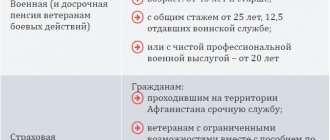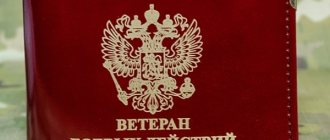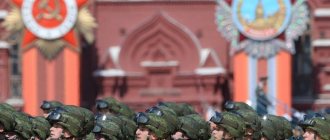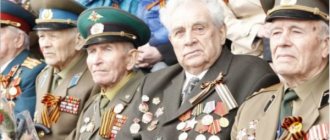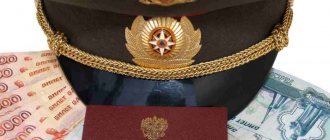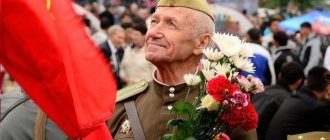In February 1980, Mujahideen attacks on mechanized columns and garrisons of Soviet troops became more frequent; at the end of the month, mass anti-government protests took place in Kabul, and the Soviet embassy was fired upon. After this, the leadership of the USSR decided to begin active military operations jointly with the DRA army to defeat the armed opposition.
According to estimates by the USSR Ministry of Defense, in different years the number of militants opposing Soviet and Afghan government forces in Afghanistan varied from 47 thousand to 173 thousand people.
Since March 1980, Soviet troops carried out military operations in the country, a unified plan for which was approved by the USSR Ministry of Defense. At the same time, with the help of Soviet military specialists, the Afghan armed forces were reorganized and strengthened. Later, in April 1985, OKSV moved from active large-scale combat operations to supporting the operations of Afghan government forces with aviation, artillery and, if necessary, engineer units. Soviet special forces units continued to fight opposition caravans.
In total, in 1979-1989, 416 large-scale operations were carried out to defeat particularly dangerous Mujahideen groups and their large bases. These include the so-called Panjer operations against the militants of the field commander Ahmad Shah Massoud in the Panjer Gorge (1980-1985), the Kunar operation in areas on the border with Pakistan (1985), the operation to defeat the Jawar base area (1986), and Operation Highway in unblocking of the city of Khost (1987-1988) and others.
Soviet troops also almost continuously participated in unscheduled military operations against detected groups of Islamic militants. In 1984-1987, the “Veil” action plan was in effect on the Pakistan-Afghan and Iran-Afghan borders, within the framework of which OKSV military personnel daily set up up to 30-40 ambushes against Mujahideen caravans. In the spring of 1987, the “Barrier” system was introduced - the eastern and southeastern parts of the DRA were blocked by a chain of ambushes and units that guarded road junctions and controlled mountain gorges from the heights. However, after the return of Soviet and Afghan government forces to their deployment points, the Mujahideen often regained control over the territory they had previously lost. The armed Islamic opposition did not have enough strength to overthrow the PDPA regime, and at the same time, government troops, even with the assistance of the OKSV, could not completely eliminate the Mujahideen detachments supported by the United States and Arab countries. In general, the war showed that Soviet troops could not effectively fight against an enemy relying on guerrilla tactics.
Combatant status
The veteran status of participants in the military campaign in Afghanistan is determined by Federal Law No. 5-FZ of January 12, 1995. These include the following categories of citizens who were on the territory of the above state during the fighting there by the Union of Soviet Socialist Republics (hereinafter referred to as the USSR):
- security officials who took personal part in conflicts;
- civil aviation pilots who delivered cargo to a “hot spot” and became disabled;
- military personnel of automobile battalions;
- persons sent to work and who have worked the entire required period;
- the flight personnel of the Soviet Army who flew into the territory of the mentioned foreign state;
- civilians sent to serve military units of the USSR and received state awards.
"Civil War Rumbles"
After the April revolution of 1978, the Afghan government made attempts to gain the support of the people: schools and hospitals were opened, factories were built, and peasants could receive land for free. However, in a country with strong Islamic traditions, such tactics led to diametrically opposite results: opposition groups were organized in provincial areas, and as a result of the government’s fight against illegal groups, residents of peaceful villages often came under attack.
The year of the beginning of the civil war is considered to be 1978, when the Afghan government declared war on the dushmans - armed rebels. A significant event was the uprising in the city of Herat (March 1979). The likelihood of the city being captured by opposition representatives was quite high, and, fearing for the shaken government, the Afghan leadership began negotiations with the Soviet government and providing military assistance to suppress the rebellion. Realizing the consequences of sending troops into Afghanistan, the leadership of the USSR in early March 1979 chose to stay away from the conflict.
The Afghan government army managed to localize the rebellion, but this did not lead to an improvement in the situation in the country. The civil war flared up more and more: illegal bandit groups were able to take control of the mountainous and rural areas, and also occupied a number of cities. Simultaneously with the decline in the popularity of Nud Mohammed Taraki in the political arena, the rating of Hafizullah Amin, a supporter of the idea of establishing order exclusively by military force, was rapidly growing.
After short political games, supporters of Mohammed Taraki attempted to assassinate Amin. The consequences developed rapidly: Nur Mohammed Taraki was removed from all positions and expelled from the PDPA membership, and in September 1979 he was killed. Having headed the government of Afghanistan, Hafizullah Amin actively began to cleanse the ranks of the Parcham PDPA faction and the clergy, but this did not help solve the problem with the rebels. Moreover, more and more often, soldiers and officers of the active army began to go over to the side of the Mujahideen.
Legal regulation
The terms of accrual and the procedure for payment to combatants and veterans are regulated by a number of regulations:
- Federal Law of the Russian Federation dated January 12, 1995 No. 5-FZ - the basic law “On Veterans”;
- Part 2, Art. 218 Federal Law “Tax Code of the Russian Federation (hereinafter referred to as the Tax Code of the Russian Federation)” of the Russian Federation dated 05.08.2000 No. 117-FZ;
- Federal Law of the Russian Federation dated December 17, 2001 No. 173-FZ;
- Federal Law RZ dated July 17, 1999 No. 178-FZ;
- Federal Law of the Russian Federation dated November 24, 1995 No. 181-FZ.

Palaces, thieves and mafia
The “cleansing” of the ranks of the Afghan army from graduates of Soviet military institutions only made things worse - US-trained military personnel are unable to resist the Taliban, which has captured 65% of the country’s territory. There are terrible traffic jams everywhere in Kabul - there are checkpoints at every step, ministry buildings are surrounded by concrete walls, protecting themselves from suicide bombers, the police are searching cars in search of explosives. Since 2001, when the US-led coalition liberated Afghanistan from Islamists, 1 trillion (!!!) dollars have been spent on rebuilding the country. Where did this crazy money go? They were completely stolen by Afghan officials, warlords and drug mafia who are building luxurious palaces in Dubai. Even the Taliban pays its fighters more than Afghan soldiers receive. My taxi stops next to Kabul bread
On February 15, 1989, the USSR army left Afghanistan. During the period of “Soviet power” there was a lot of bad things, but there were also plenty of good things. Afghans continue to remember this - although they are trying to make them forget.
Topic to be continued in the next issue
What is the pension for veterans of combat operations in Afghanistan?
The following is a table showing what types of pensions there are for combatants in Afghanistan:
| Type of benefit | Conditions of appointment |
| Military (and early pension for combat veterans) | Professional military personnel and intelligence officers who meet the following criteria:
|
| Insurance | Citizens:
|
| Social | Appointed due to disability |
- How to check balance on MTS
- What are the dangers of high blood sugar after 50 years?
- Quantiferon test
Long service pension
The minimum pension for veterans of the military campaign in Afghanistan is about 9,500 rubles. for 2020 Average amount of payments: 15,000–20,000 rubles. The amount of the “Afghan” benefit is calculated individually, but a number of general factors taken into account in the calculations can be identified:
- Every year of the period of stay in the war 1979 - 1989. in Afghanistan is equivalent to 3 years of regular service.
- Experience. The minimum professional military service is 12.5 years.
- Presence of injuries. If they result in a disability of any group, the person with disabilities will receive a social pension.
- Place of registration. The amount of the minimum benefit depends on the region of residence of the veteran of the military campaign in Afghanistan.
- Position, rank, awards - the allowances that a security officer receives depend on their quantity and quality.
“Afghan” pensioners have the right to apply for two types of pensions at once: basic and veteran. The first is formed according to the accumulated experience and/or is assigned in a standard way upon reaching the age limit (60 years for men and 55 years for women). The second is the veteran pension for Afghans in Russia - this is a monthly cash payment (hereinafter referred to as EDV).
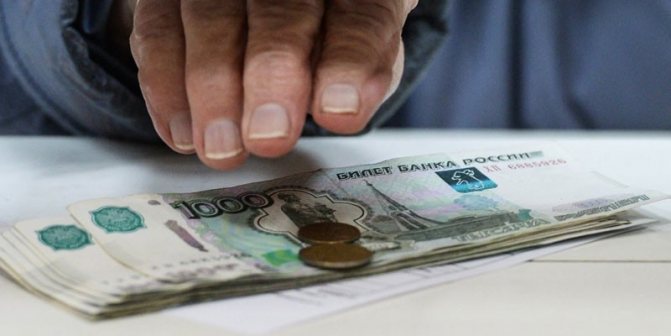
Monthly cash payment (MAP)
Participants in the military campaign in Afghanistan are entitled to EDV. This is an independent supplement to one of the types of benefits, which is also due to family members of security forces who died in the line of duty. The fixed amount of EDV from 01/01/2018 is 1775.07 rubles. with the consent of the “Afghan” to receive a set of social services (hereinafter referred to as NSO). A military pensioner has the right to replace the NSU by increasing the amount of the monthly allowance. If the NSO is completely abandoned, the size of the EDV for 2020 will be 2850.26 rubles.
- 10 very harmful foods that aren't
- 6 changes to your body if you replace coffee with tea
- What documents do the bank need to defer loan payments?
Disability pension
The basic amount of social pension (hereinafter - SP) for disabled people was 5180.24 rubles for 2020. Participants and veterans of the military campaign in Afghanistan are no exception. Table of the size of the joint venture due to disabled security forces:
| Recipient category | Benefit amount (r.) |
| Heroes of the USSR, holders of state awards, medals, order bearers | 10,360.5 (SP + 100%) |
| “Afghans” who became disabled due to combat trauma: | |
| 1 gr. | 20,721 (SP + 300%) |
| 2 gr. | 15,540.7 (SP + 200%) |
| 3 gr. | 12,950.6(SP + 150%) |
| “Afghans” who became disabled due to illness: | |
| 1 gr. | 18,130.8 (SP + 250%) |
| 2 gr. | 12,950.6(SP + 150%) |
| 3 gr. | 10,360.5 (SP + 100%) |
Benefits for combatants in Afghanistan
In addition to pensions, participants in the Afghan military campaign are entitled to benefits. The list of social guarantees and preferences is extensive:
| Privileges | Description |
| Tax | Exemption from fiscal tax on real estate |
| Benefit for paying land tax – reduction of the tax base by 10,000 rubles | |
| Exemption from payment of court fees | |
| Deduction when calculating income tax: basic – 500 rubles, for a disabled payer – 3,000 rubles. | |
| Housing | If a veteran and his family members need improved housing conditions, the federal authorities are obliged to provide them with premises free of charge or a land plot for individual construction (hereinafter referred to as individual housing construction) - they should have queued up to receive it before December 31, 2004, the right only accrues for invalids |
| Participants in the military campaign in Afghanistan are entitled to a 50% discount when paying for housing and communal services – Housing and Communal Services | |
| Extraordinary installation of a landline telephone in an apartment/house | |
| Medical | Extraordinary examination/dispensary examination – available in departmental institutions (for example, military hospitals) |
| Free trip to a sanatorium-resort treatment once a year if there are medical indications | |
| Free planned treatment in military hospitals | |
| Purchase of prosthetics (except dental ones) free of charge or state compensation for their cost | |
| Labor and educational | Timing of annual leave |
| Obtaining professional education while maintaining your salary | |
| The right to enrollment in a higher education institution (hereinafter referred to as the university) without competition | |
| Taking additional unpaid leave at your own request – up to 35 calendar days | |
| Accrual of an increased scholarship when studying at a university | |
| Regional (should be checked by place of residence) | Exemption from transport tax |
| Ticket |
How many Afghans are left in Russia?
Of course, attempts were made to denigrate our team for both political and religious reasons. Moreover, whenever drugs are mentioned in the media, Afghans are immediately mentioned. The accepted stamp is “Afghan heroin.” But most importantly, our merit is that the Afghan community is not associated with drugs. We are carefully monitoring this, we have an agreement between the leadership of the community and all members that we cannot have something like this. And this is in our own interests, since law enforcement agencies closely monitor the activities of the Center.
Since the vast majority of Afghans did not have any documents, some kind of official organization was needed. In order for any organization to be recognized by the Afghan community, it had to be elected. In February 1997, secret elections were held for the management of the Afghan business center, the board of directors and deputy management. This is how the non-profit partnership “Afghan Business Center” appeared, which, in essence, did the work of the diaspora. The center was officially registered by government authorities.
How to apply for a pension
To formalize the assignment of benefits to a veteran of the military campaign in Afghanistan, you will need to take a number of actions. Step-by-step instruction:
- Apply for a combat veteran ID to confirm your veteran status. The document is issued at the territorial branch of the department that sent the military man to serve in Afghanistan.
- Prepare the necessary package of papers.
- Contact them with an employee of the regional branch of the Pension Fund of Russia (hereinafter referred to as the PFR).
- The period for reviewing documentation is 10 days.
- Wait for a positive decision and come for benefits - they will begin to accrue from the next month after the date of approval of the application.

List of required documents
To formalize the assignment of an “Afghan” pension, a veteran should prepare a package of necessary documents. Here is their list:
- passport of a citizen of the Russian Federation;
- statement;
- employment history;
- ID card of a participant in hostilities;
- 2 photographs 3x4 cm;
- award papers;
- additional evidence confirming participation in the Afghan military campaign.
How many Afghans are left in Russia?
We provide refugee status to those Afghans who have been living in the Russian Federation for a long time. Most of them are supporters of the Najibullah regime, those who came to study in the USSR and Russia and then stayed here, as well as orphans. Afghans who have received Russian citizenship can invite their relatives and friends to the Russian Federation. Of course, they, as the inviting party, are responsible for the legality of the stay of their fellow countrymen on Russian territory.
Currently, almost 62 percent of all foreign citizens applying to the FMS are Afghans. On the one hand, this is due to the fact that the situation in Afghanistan is worsening every day. On the other hand, the territorial proximity of the Afghan state to Russia and, of course, the traditions and ties of our two peoples. As a rule, immigrants from Afghanistan arrive first of all in the subject of the Russian Federation where they studied, went on business trips or worked.


